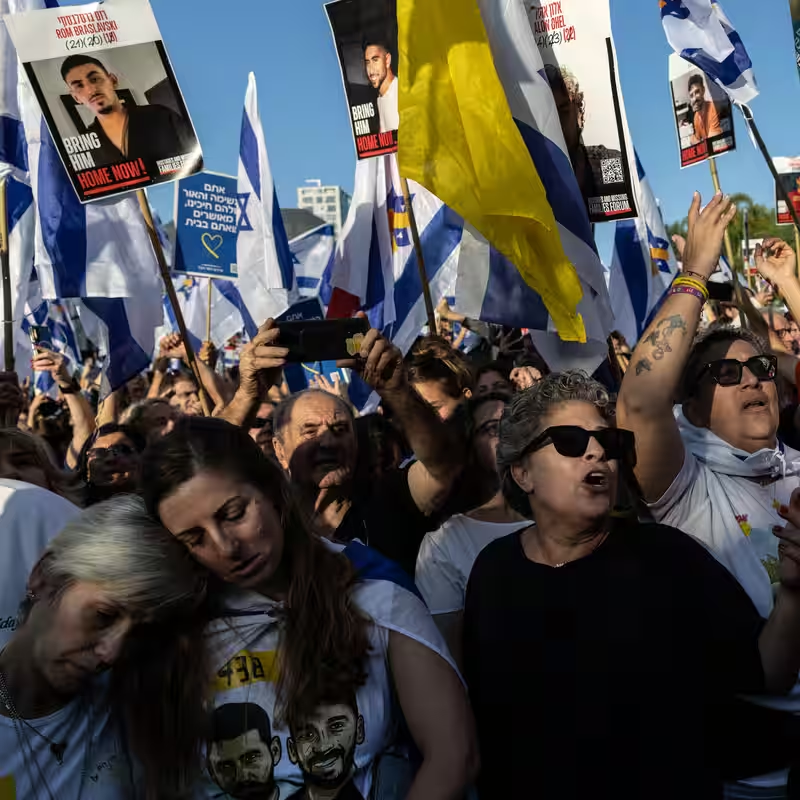Table of Contents
- A Painful Trade: Hostages for Convicted Killers
- Families Speak Out: ‘This Feels Like Betrayal’
- Who Was Released? A Look at the Prisoners
- Trump’s ‘New Dawn’ vs. Domestic Grief
- The Moral Dilemma at the Heart of the Deal
- Sources
A Painful Trade: Hostages for Convicted Killers
As part of the landmark Gaza ceasefire deal brokered by former U.S. President Donald Trump, Israel released approximately 2,000 Palestinian prisoners on October 13, 2025—including dozens convicted of violent attacks that killed Israeli civilians and soldiers. For many Israeli families, the sight of those responsible for their loved ones’ deaths walking free has reopened wounds that never fully healed.
“I watched the bus roll in on TV,” said Miriam Levi, whose son Daniel was killed in a 2016 West Bank stabbing. “One of the men stepping off was his murderer. How do you explain that to a grieving mother?”
The prisoner release is a cornerstone of the 20-point peace plan that secured the freedom of the last 20 living Israeli hostages held by Hamas. But while the deal has been hailed internationally as a breakthrough, it has ignited raw anguish at home—exposing the deep emotional cost of peace negotiations.
Families Speak Out: ‘This Feels Like Betrayal’
Across Israel, families of terror victims have taken to social media and public forums to voice their pain. Some held silent vigils outside government buildings; others confronted officials directly.
“We support bringing our hostages home—of course we do,” said Avi Shoshani, whose brother was killed in a 2014 bus bombing. “But releasing people who proudly admit they wanted to kill Jews? That’s not justice. That’s surrender.”
Not all released prisoners were convicted of murder—many were detained without charge under administrative detention. But among them were individuals serving life sentences for bombings, stabbings, and car-ramming attacks that claimed Israeli lives.
Who Was Released? A Look at the Prisoners
While Israel has not published a full list of those freed, local media and human rights groups have identified several high-profile cases:
| Name | Crime | Sentence | Victim(s) |
|---|---|---|---|
| Nasser Shehadeh | Car-ramming attack on soldiers | 17 years (served 3) | 2 injured |
| Ahmad al-Rifi | 2015 Jerusalem bus bombing | Life + 30 years | 3 killed, 21 injured |
| Yusef Abu Jazar | Stabbing of civilian in Tel Aviv | Life | 1 killed |
| Multiple unnamed detainees | Administrative detention (no formal charges) | Varies | N/A |
Many of these individuals were celebrated as heroes in parts of the West Bank and Gaza upon their return—met with cheers, fireworks, and banners calling them “freedom fighters.”
Trump’s ‘New Dawn’ vs. Domestic Grief
President Trump, addressing Israel’s Knesset, called the exchange “the historic dawn of a new Middle East.” He received a standing ovation from lawmakers—but outside the chamber, the mood was far more somber.
Prime Minister Benjamin Netanyahu, while praising Trump as “Israel’s greatest friend,” notably refrained from declaring the war “over.” His absence from a regional summit in Egypt—citing the Jewish holiday Shemini Atzeret—was seen by some as a signal of internal political tension.
“The government is caught between international pressure and domestic trauma,” said Dr. Yael Aronoff, a political scientist at Michigan State University. “You can’t negotiate peace without concessions—but for victims’ families, every concession feels personal.”
The Moral Dilemma at the Heart of the Deal
Israel has a long-standing policy of “no hostage left behind,” often trading hundreds—even thousands—of prisoners for a handful of captives. The 2011 Gilad Shalit deal, for example, exchanged one Israeli soldier for 1,027 Palestinian prisoners.
Yet each exchange reignites a national debate: Does prioritizing hostages undermine justice? Does freeing violent offenders endanger future lives?
For now, the country walks a tightrope—celebrating the return of sons and daughters while mourning the release of those who took others away forever.
“We got our boy back,” said one father, tears in his eyes, watching his son hug his grandmother on live TV. “But I saw the news. I know who else came home today. And I can’t unsee it.”




